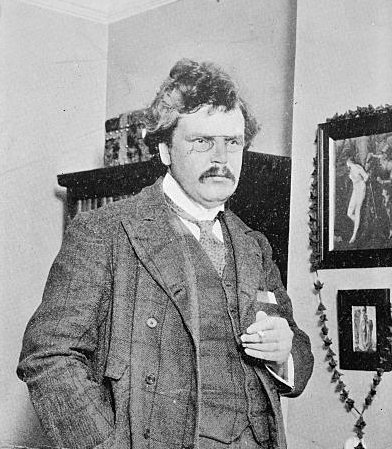Tag Archives: Christ
Eugenics and other Evils (3): The Anarchy from Above
A silent anarchy is eating out our society. I must pause upon the expression; because the true nature of anarchy is mostly misapprehended. It is not in the least necessary that anarchy should be violent; nor is it necessary that it should come from below. A government may grow anarchic as much as a people. The more sentimental sort of Tory uses the word anarchy as a mere term of abuse for rebellion; but he misses a most important intellectual distinction. Rebellion may be wrong and disastrous; but even when rebellion is wrong, it is never anarchy. When it is not self-defence, it is usurpation. It aims at setting up a new rule in place of the old rule. And while it cannot be anarchic in essence (because it has an aim), it certainly cannot be anarchic in method; for men must be organized when they fight; and the discipline in a rebel army has to be as good as the discipline in the royal army. This deep principle of distinction must be clearly kept in mind. Take for the sake of symbolism those two great spiritual stories which, whether we count them myths or mysteries, have so long been the two hinges of all European morals. The Christian who is inclined to sympathize generally with constituted authority will think of rebellion under the image of Satan, the rebel against God. But Satan, though a traitor, was not an anarchist. He claimed the crown of the cosmos; and had he prevailed, would have expected his rebel angels to give up rebelling. On the other hand, the Christian whose sympathies are more generally with just self-defence among the oppressed will think rather of Christ Himself defying the High Priests and scourging the rich traders. But whether or no Christ was (as some say) a Socialist, He most certainly was not an Anarchist. Christ, like Satan, claimed the throne. He set up a new authority against an old authority; but He set it up with positive commandments and a comprehensible scheme. In this light all mediaeval people — indeed, all people until a little while ago — would have judged questions involving revolt. John Ball would have offered to pull down the government because it was a bad government, not because it was a government. Richard II would have blamed Bolingbroke not as a disturber of the peace, but as a usurper. Anarchy, then, in the useful sense of the word, is a thing utterly distinct from any rebellion, right or wrong. It is not necessarily angry; it is not, in its first stages, at least, even necessarily painful. And, as I said before, it is often entirely silent.


